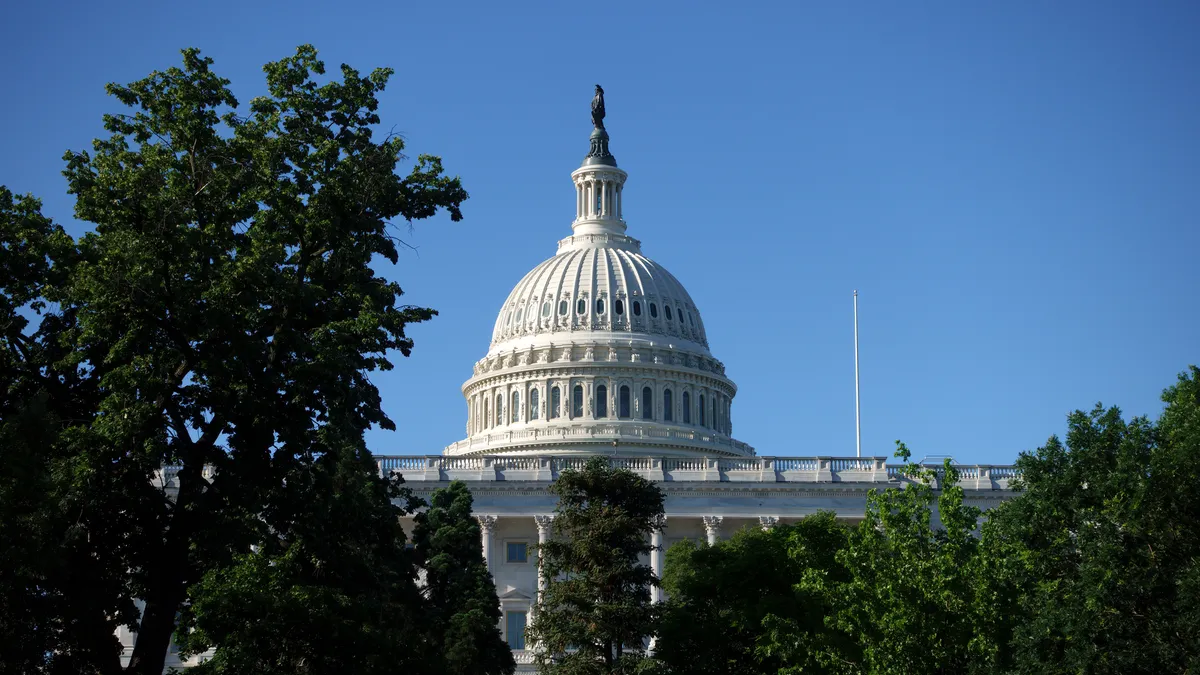Dive Brief:
- Bipartisan federal legislation reintroduced this week would place new restrictions on income-share agreements, a controversial tool for financing a college education.
- Income-share agreements, or ISAs, allow college graduates to pay back their tuition and fees with a set percentage of their income over an established timeframe. But critics say the terms of these deals are often murky, lack government oversight and may saddle students with even more debt.
- Versions of the latest bill have been put forth since 2015, but none have passed into law. The current iteration contains provisions like a 20% cap on the percentage of income an individual would pay and requirements that ISAs contain detailed disclosures.
Dive Insight:
Whether ISAs are considered student loans and thus are covered by current consumer protection law has been oft-debated.
Recent regulatory movement signals state and federal officials are more actively monitoring these arrangements. Notably, the Consumer Financial Protection Bureau last year determined that ISAs count as private loans, a legal interpretation the U.S. Department of Education endorsed. At the same time the CFPB issued its consent decree establishing ISAs as loans, it targeted a Virginia-based nonprofit, Better Future Forward. It ordered the provider to stop saying its agreements weren’t loans.
Also last year California regulators said they would treat ISAs as student loans.
Classifying ISAs as loans would make them subject to consumer protection laws, but their supporters say this deals a blow to an emerging financing model that could alleviate graduates’ debt burden.
However, some federal lawmakers — including sponsors of the new bill Democratic Sen. Mark Warner of Virginia and Republican Sen. Marco Rubio of Florida — say ISAs need more guardrails. They also said their draft legislation would create a framework that would help ISAs develop.
Their bill would prevent ISA contracts from exceeding 240 monthly payments, the equivalent of 20 years. And the deals would have to expire after 360 months, or 30 years, regardless of how much a graduate still had left to pay.
Under the bill's terms, ISA providers would have to offer low-income students at least three months of payment relief pauses for every 30 payments made.
And students would not have to make payments if doing so would cause them to fall 200% below the federal poverty line. The bill also would explicitly apply consumer protection laws, such as the Fair Credit Reporting Act, to ISAs.
“Everything is more expensive these days, especially the cost of a college degree. This common sense bill creates a debt-free financing option for students,” Rubio said in a statement.
Several workforce development groups, like Jobs for the Future, have backed the legislation.
Some advocacy organizations — and students and families — have sharpened their criticisms around ISAs. The Indianapolis Star in May detailed how students at Purdue University, a public institution in Indiana, felt swindled by its Back a Boiler ISA and said they didn’t fully understand the agreements when they signed them.
The Back a Boiler program, which to date has spawned more than 1,600 ISA contracts, was an early example of a major public institution pursuing ISAs. It was championed by retiring Purdue President Mitch Daniels, who also supports the new federal legislation.
The Student Borrower Protection Center last year alleged to U.S. Secretary of Education Miguel Cardona that the Purdue ISA was illegal.
Purdue denied wrongdoing. The university later suspended Back a Boiler but linked the move to a change in the vendor used to service ISAs.















